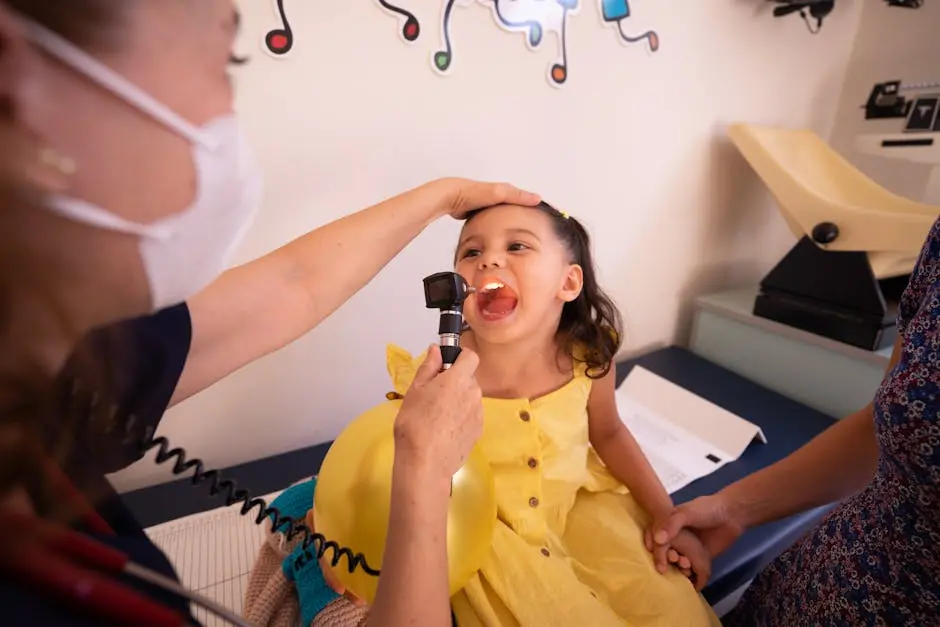Integrative pediatrics combines traditional healthcare practices with alternative therapies, focusing on the whole child. This approach not only treats illness but also promotes overall wellness in growing children. In this article, we will explore various benefits that integrative pediatrics offers for your child’s health and well-being.
1. Holistic Health Focus
Integrative pediatrics places significant emphasis on the holistic health of your child. Unlike conventional medicine, which often targets specific symptoms or illnesses, this approach seeks to understand the child as a whole. By considering factors such as emotional, physical, and social well-being, integrative pediatrics offers more comprehensive care. This holistic approach helps to identify underlying causes of health issues rather than merely treating symptoms. Overall, it fosters a deeper understanding of your child’s health journey.
Moreover, focusing on the entire well-being can lead to improved long-term health outcomes. When pediatricians take the time to assess emotional health in conjunction with physical health, they can better tailor care plans to suit each child’s unique needs. This emphasis on emotional and mental health not only addresses immediate concerns but also lays a foundation for resilient health in adulthood. Research suggests that children who receive holistic care tend to develop healthier coping mechanisms as they grow.
2. Customized Treatment Plans
Another significant benefit of integrative pediatrics is its focus on customized treatment plans. Every child is unique, possessing their own set of strengths, weaknesses, and health challenges. Instead of adopting a one-size-fits-all approach, integrative pediatrics takes the time to create individualized care plans. These plans integrate various forms of therapy—from traditional medications to nutritional counseling and alternative therapies—resulting in a tailored approach that resonates with both the child and their family.
For instance, if a child is struggling with asthma, an integrative pediatrician might combine conventional inhalers with dietary modifications and breathing exercises. This personalized strategy not only addresses immediate symptoms but also empowers families to take an active role in their child’s health management. Over time, customized treatment plans foster a sense of ownership, encouraging children to become proactive about their health as they grow older.
3. Collaboration with Healthcare Providers
Integrative pediatrics thrives on collaboration. When pediatricians work together with other healthcare providers—such as nutritionists, physical therapists, and mental health professionals—they create a more robust care network for your child. This collaboration ensures that every aspect of your child’s health is addressed, facilitating the creation of a more unified and comprehensive treatment plan.
Furthermore, this collective approach not only leads to better health outcomes but also strengthens the trust between parents and the healthcare team. Parents can feel supported knowing that their child’s health is being managed by a group of professionals who are all invested in their well-being. This interprofessional collaboration can be especially beneficial when managing chronic conditions, where a multifaceted approach is often required to provide optimal care.
4. Increased Emotional Support
One of the often-overlooked advantages of integrative pediatrics is the increased emotional support it provides. Traditional healthcare can sometimes feel transactional, but integrative practitioners prioritize building strong relationships with both children and their families. This nurturing environment allows for more open communication, enabling children to express their feelings while receiving the care they need. When children feel safe and heard, they are more likely to engage positively in their health journey.
Moreover, emotional support extends beyond just the child—families benefit as well. Support groups or resources are often part of integrative pediatrics, offering guidance to parents navigating complex health issues. The sense of community that arises from shared experiences provides emotional relief and practical advice, allowing families to feel less isolated in their challenges. This comprehensive approach to both emotional and physical health can ease the overall burden of parenting during difficult times.
5. Focus on Disease Prevention
Preventive care is at the heart of integrative pediatrics. Rather than simply reacting to illnesses, practitioners aim to educate families on fostering a healthy lifestyle that can prevent future complications. This proactive approach emphasizes making healthier choices through nutrition, exercise, and stress management. By emphasizing prevention, families are empowered to take charge of their well-being before health issues arise.
Regular check-ups in integrative pediatrics often include assessments of lifestyle choices, and pediatricians work collaboratively with families to establish wellness goals. Families learn to recognize potential health risks and are provided with the tools to mitigate them, fostering a culture of health awareness that can last a lifetime. As knowledge is shared, families become more adept at recognizing the early signs of illness, paving the way for faster intervention when necessary.
6. Empowerment Through Education
Education is a fundamental pillar of integrative pediatrics. In a doctor’s office where education is prioritized, children and their families learn about health in an engaging and empowering manner. Age-appropriate discussions help children grasp essential concepts about their bodies, enabling them to make informed choices. This process fosters a sense of autonomy and responsibility towards their health that is life-long.
When families understand the ‘why’ behind nutritional choices, exercise regimens, and treatment options, they are far more likely to embrace these practices in daily life. Knowledge dispels fear and confusion, transforming potential worries into proactive strategies. An educative approach cultivates resilience and encourages children to take ownership of their health journeys, instilling healthy habits that can transcend generations.
7. Access to Alternative Therapies
Integrative pediatrics stands out for its inclusive approach to treatments, particularly regarding alternative therapies. These may include practices like acupuncture, herbal medicine, and mindfulness techniques. Access to such diverse modalities can be particularly beneficial for children who may not respond adequately to conventional medicine alone. By exploring complementary treatments, integrative practitioners offer families more options to manage health conditions effectively.
Additionally, the introduction of alternative therapies can enhance overall treatment efficacy. For instance, combining conventional treatments with mindfulness techniques can significantly reduce anxiety and improve emotional well-being in children. Parents appreciate having a wider array of tools to support their child’s health, creating a tailored experience that is not solely reliant on usual pharmacological approaches. This fusion of traditional and alternative methods nurtures a balanced pathway to well-being.

